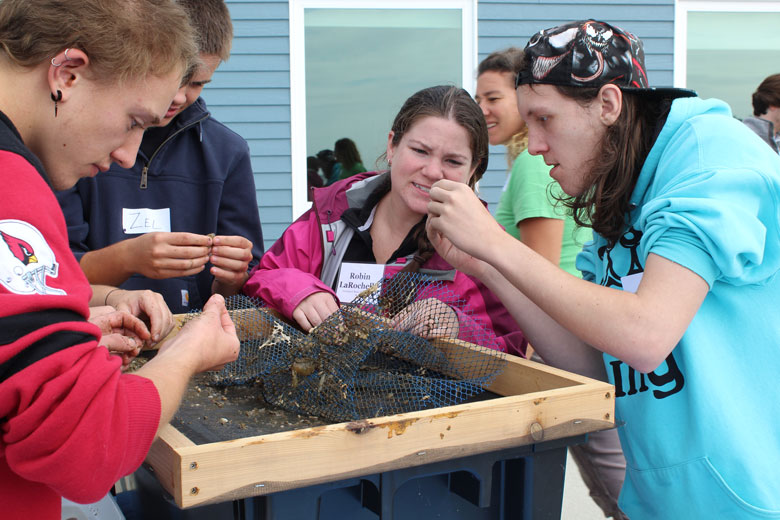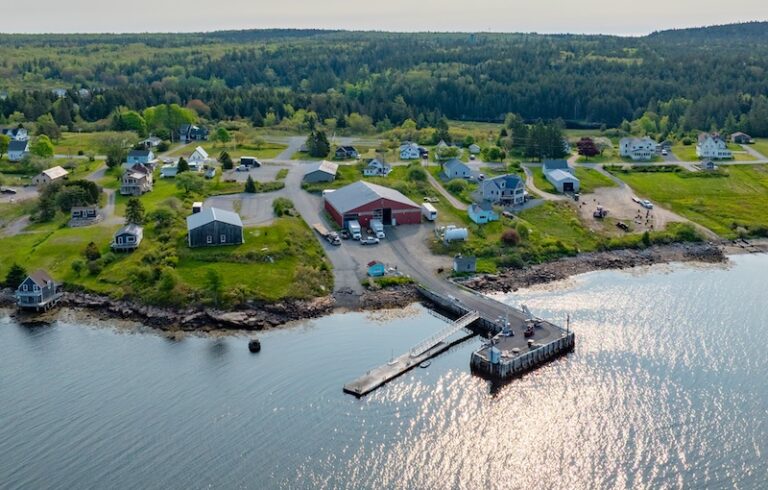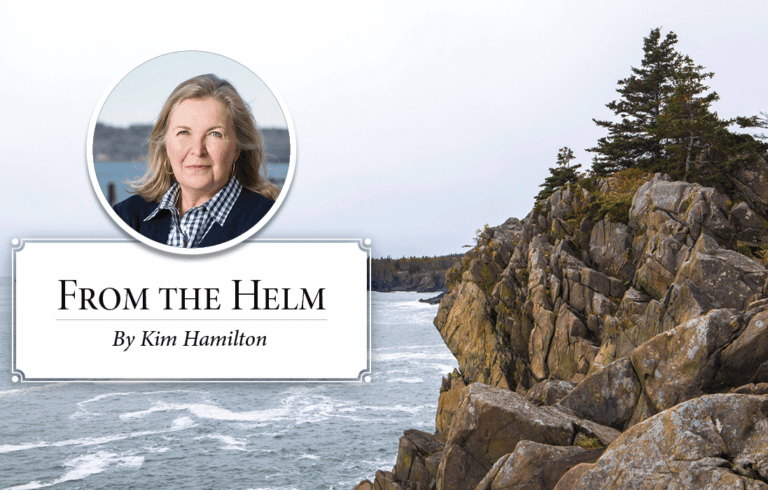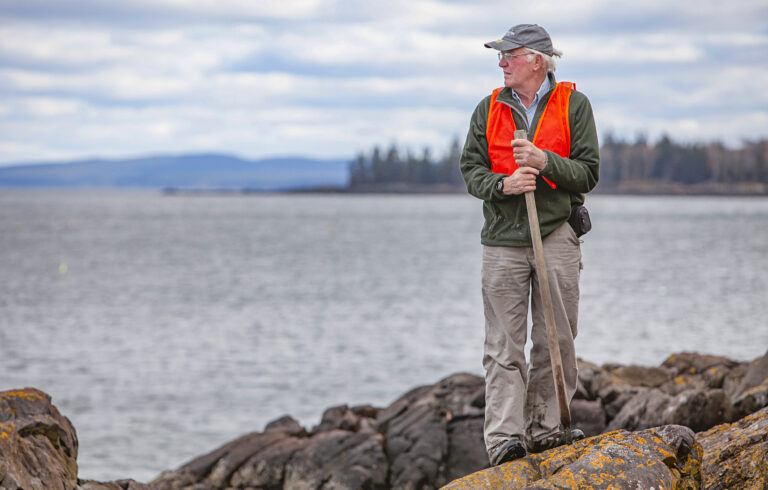Before dawn on a school day, lobstermen from Downeast are preparing for a long day of work. For some teenage fishermen it will be a difficult decision—go to school that morning or spend time on the water, pulling their own traps and gaining hours toward their adult lobstering licenses?
Fishing brings challenges, freedom, and the joy of being on the ocean. On the downside, the work is cold, strenuous, and dangerous, but the money that can be made by a lobsterman right out of high school can exceed that of a teacher with a master’s degree.
Big money and independence equal big status for young people.
If money and autonomy are the primary ways we measure success, then lobstering outclasses high school any day.
So, from the teen perspective, why not seize the day? After all, formal education is all about the future and many young people want to live for now.
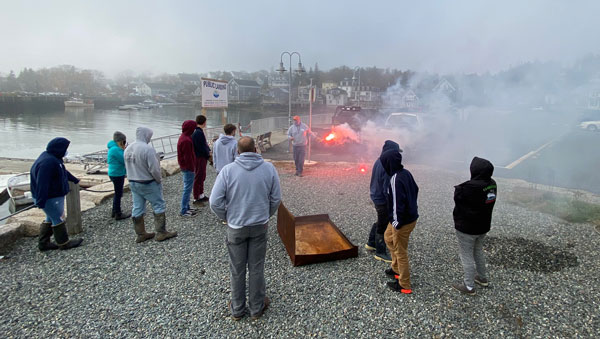
Enter a team of idealistic educators from the Eastern Maine Skippers Program, who believe that schooling has value far above raising a young person’s earning capacity. Those educators strive to keep young people in school and in their communities, making a living today and a positive difference tomorrow.
The Eastern Maine Skippers Program is the school-based arm of Maine Center for Coastal Fisheries (MCCF). It was established in 2010 to help young people contribute to the working waterfront in their communities.
Alexa Dayton, executive director of MCCF says that Skippers (as it is known) creates hope for the future for the fisheries in Maine. The next generation has a wonderful future that can be achieved by learning to work collaboratively with peers, fishermen, scientists, and citizens, which the program stresses, she said.
Many of the students participating the program, who will likely end up in some marine economy employment, may not pursue post-secondary education, so the Skippers program offers practical yet critical thinking experience.
Skippers operates in nine schools Maine coastal and island communities: Deer-Isle-Stonington High School, Ellsworth High School, George Stevens Academy, Jonesport-Beals High School, Mount Desert Island High School, Narraguagas High School, North Haven Community School, Vinalhaven Community School, and Washington Academy.
Typically, students participate for one year, learning hands-on skills that will help them with present and future maritime careers. Although each program creates its own curriculum, the emphasis is on creating exciting opportunities that meet the needs of the community and students.
Maddie Hallowell grew up on North Haven and attended the Skippers program in high school. She graduated from Bates College with a concentration in environmental science. Now she is the co-instructor for Skippers in North Haven.
At her school, the program teaches students how to use real-world experiences from fishermen and scientists to pique curiosity about fishing, the environment, and how to solve problems in a community setting. A recent project her class created was a glove drier for fishermen. Her students hope it will encourage reuse of fishing gloves and reduce pollution from discarded gloves. The invention was presented at the Maine Fishermen’s Forum earlier this year and was well-received by professionals in the field.
Skippers, like its parent program at MCCF, is working to redefine the character of waterfront industries by creating a web of interconnectedness from elements that historically have worked in isolation. It helps young people understand the bigger picture of the maritime economy.
The success of this program will benefit not only coastal communities but Maine as a whole, its advocates say. It teaches seamanship, fisheries management, biology and ecology, and how to run a small business. Its hands-on approach gives kids insight into the lives of their families and neighbors.
The mentoring they receive both in school and from those working in the field creates a web of support.
The goals of education are improvements in knowledge, attitudes, behavior, and skills. The Skippers program helps young people learn not only the skills they will need to make their livelihood from the sea but also the insights to help them lead their peers in an evolving maritime economy.
“We want kids to look beyond the status quo and to have hope to overcome the challenges of an uncertain future,” says Tom Duym of MCCF, who is credited with starting the program. The ultimate goal, he believes, is to get kids to believe that success is possible and to have hope and connections with peers and adults in the community that will underpin them throughout their lives.
At the Maine Fisherman’s Forum, the fisheries community meets to discuss ideas related to changes in the regulations, equipment, and impact of fisheries in Maine. There young people can interact with men and women in the field and make presentations showing accomplishments in the Skippers program. Public speaking and effective presentation are two skills taught by Skippers that will help young people in any career they pursue.
For more information on the work of the Skippers Program, contact Alexa Dayton or Tom Duym at the Maine Center for Coastal Fisheries: 207-367-2708.
